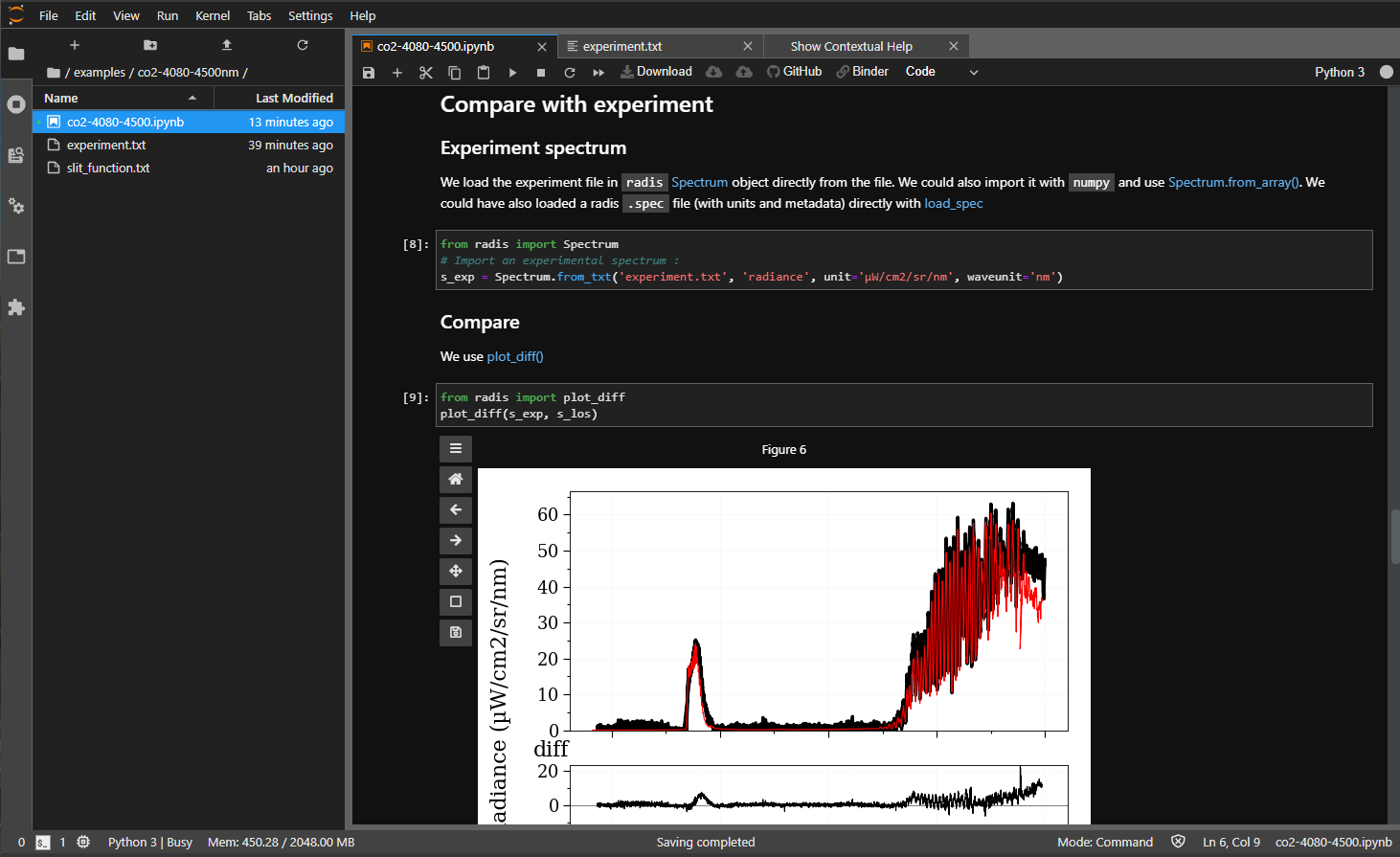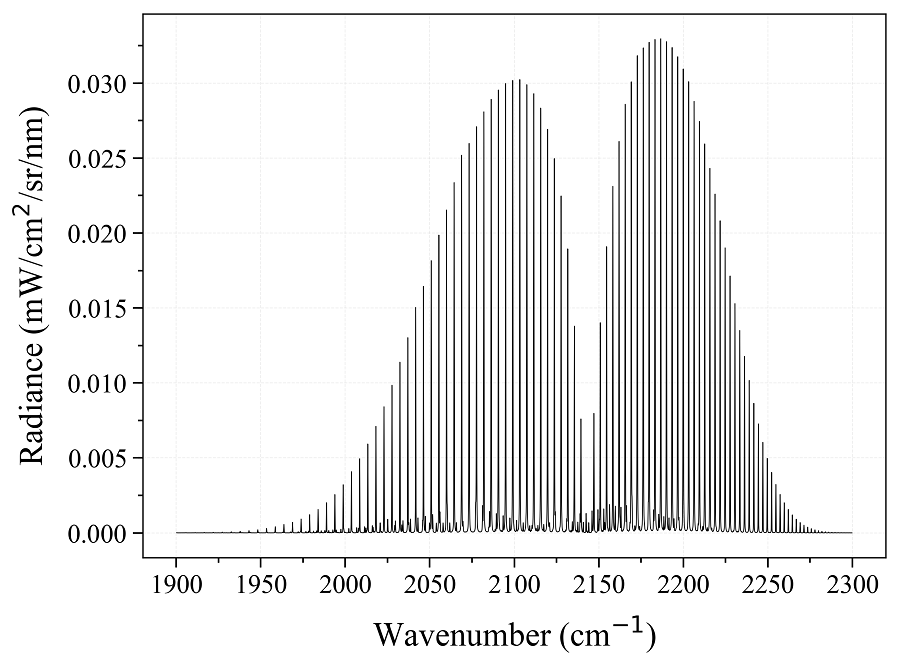RADIS is a fast line-by-line code for high resolution infrared molecular spectra (emission / absorption, equilibrium / non-LTE) based on HITRAN/HITEMP/ExoMol.
It includes post-processing tools to compare experimental spectra and spectra calculated with RADIS or other spectral codes.
User guide, install procedure and examples are available on the RADIS Website:
Assuming you have Python installed with the Anaconda distribution just use:
pip install radis -v
That's it! You can now run your first example below. If you encounter any issue, or to upgrade the package later, please refer to the detailed installation procedure .
Calculate a CO equilibrium spectrum from the HITRAN database, using the calc_spectrum function. Output is a Spectrum object:
from radis import calc_spectrum
s = calc_spectrum(1900, 2300, # cm-1
molecule='CO',
isotope='1,2,3',
pressure=1.01325, # bar
Tgas=700, # K
mole_fraction=0.1,
path_length=1, # cm
databank='hitran' # or 'hitemp'
)
s.apply_slit(0.5, 'nm') # simulate an experimental slit
s.plot('radiance')
The Quick Start examples automatically downloads the line databases from HITRAN-2016, which is valid for temperatures below 700 K.
For high temperature cases, you may need to use other line databases such as
HITEMP-2010 (typically T < 2000 K) or CDSD-4000 (T < 5000 K). HITEMP can also be downloaded
automatically, or can be downloaded manually and described in a ~/radis.json
Configuration file.
More complex examples will require to use the SpectrumFactory class, which is the core of RADIS line-by-line calculations. calc_spectrum is a wrapper to SpectrumFactory for the simple cases.
Experimental spectra can be loaded using the experimental_spectrum function and compared with the plot_diff function. For instance:
from numpy import loadtxt
from radis import experimental_spectrum, plot_diff
w, I = loadtxt('my_file.txt').T # assuming 2 columns
sexp = experimental_spectrum(w, I, Iunit='mW/cm2/sr/nm')
plot_diff(sexp, s) # comparing with spectrum 's' calculated previously
Typical output of plot_diff:
Refer to the Examples section for more examples, and to the Spectrum page for more post-processing functions.
A simple web-app for RADIS under development.

See more on GitHub
An online environment for advanced spectrum processing and comparison with experimental data :
- no need to install anything
- use pre-configured line databases (HITEMP)
- upload your data files, download your results !

🌱 Try it : https://radis.github.io/radis-lab/
See more on GitHub
For reproducibility, do not forget to cite the line database used, and the spectroscopic constants if running nonquilibrium calculations. See How to cite?
Want to contribute to RADIS ? Join the Slack community and we'll help you through the process. Want to get started immediatly ? Nice. Have a look at the CONTRIBUTING.md guide.
You need to know more about Spectroscopy ? We're working on Tutorials to make spectroscopy available to everyone. For the moment, join the Slack channel .
RADIS internals are described in the Developer Guide
The code is available on this repository under
GNU LESSER GENERAL PUBLIC LICENSE (v3) 
If encountering any problem, first refer to the list of known Issues on GitHub. We appreciate your feedback and suggestions!
For any question, please join the discussion channel on Gitter
, Slack

Finally, you can also suggest or vote for new features below:
- Documentation:
- Help:
Q&A forum
- Articles:
- Source Code:
- Test Status:
- PyPi Repository:
- Interactive Examples: radis_examples
- Fitroom (for advanced multidimensional fitting).
See awesome-spectra





)




